Science
Science
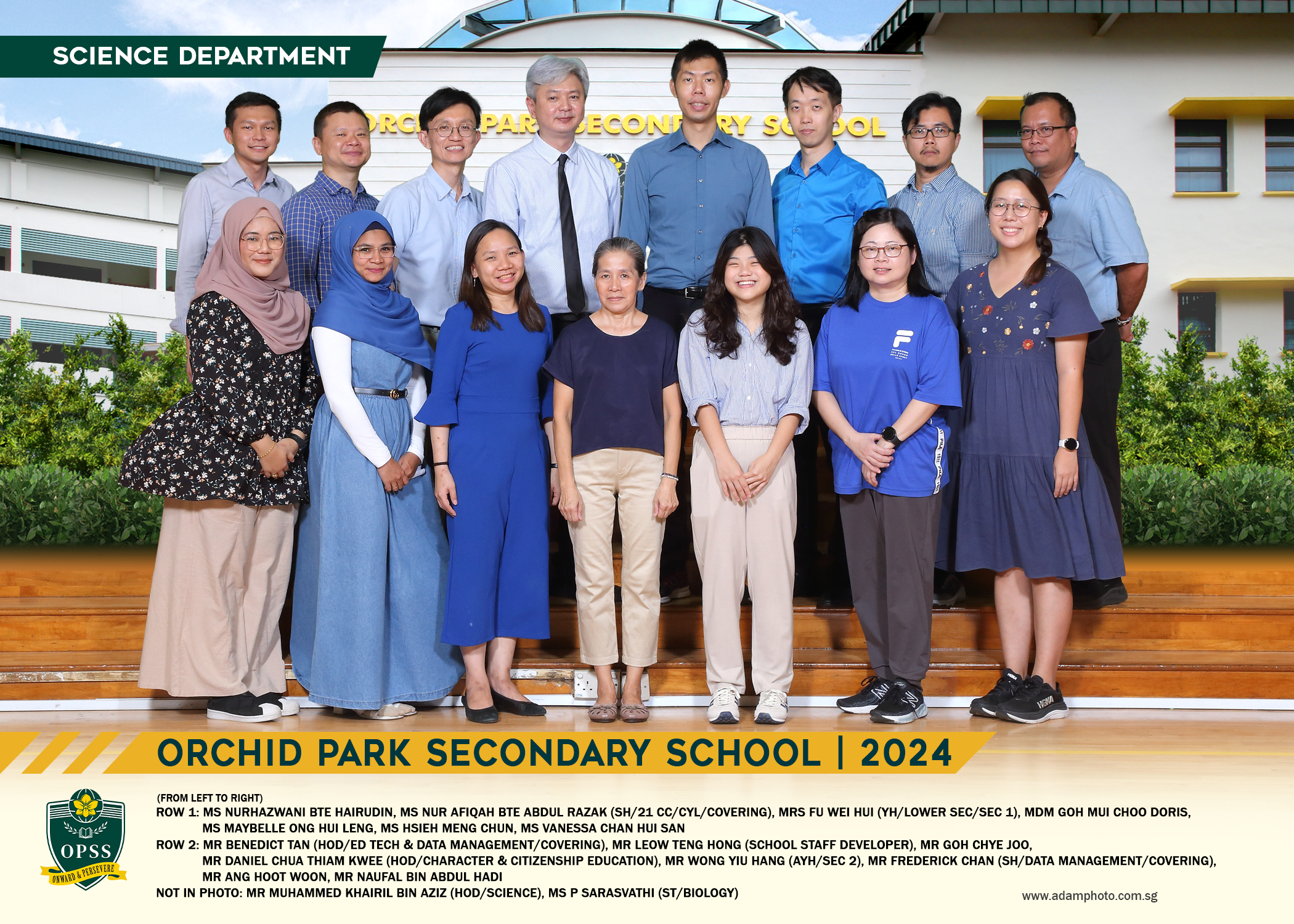
About the Department
Department Vision and Mission
Department Vision
Inquisitive Orchidians Empowered to ExcelDepartment Mission
To nurture critical thinkers with a keen interest in real-world applications of Science In OPSS, the Science department aims to nurture all students to become:- Inquisitive Orchidians who are self-directed, have a strong sense of curiosity, enjoy learning, and strive for excellence.
- Critical Thinkers who are analytical, innovative, and able to make logical connections between ideas to improve complex real-world situations.
The Science programme seeks to impart a solid foundation in scientific knowledge, as well as develop key 21st century competencies and values in our students. Focusing on inculcating the right Knowledge, Skills, Attitudes and Values (KSAV), we strive to prepare our students for the increasing VUCA world, as well as inspire them to become the scientists and innovators of tomorrow.
The Science Department’s mission is “Inquisitive Orchidians Empowered to Excel”. The department aims to nurture critical thinkers with a keen interest in real-world applications of Science. We also aim for all Orchidians to become:
- Inquisitive Orchidians who are self-directed, have a strong sense of curiosity, enjoy learning, and strive for excellence.
- Critical Thinkers who are analytical, innovative, and able to make logical connections between ideas to improve complex real-world situations.
The Science programme seeks to impart a solid foundation in scientific knowledge, as well as develop key 21st century competencies and values in our students. Focusing on inculcating the right Knowledge, Skills, Attitudes and Values (KSAV), we strive to prepare our students for the increasing VUCA world, as well as inspire them to become the scientists and innovators of tomorrow.
Signature Pedagogies
There are three main pedagogical approaches in the OPSS Science Curriculum.
1. Inquiry Based Learning (IBL)
At the heart of our Science programme is Inquiry Based Learning where students are guided to develop the spirit of scientific inquiry and engage confidently in the Practices of Science
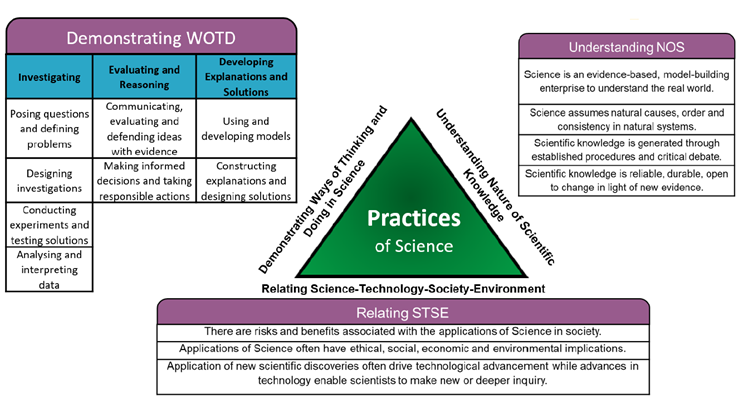
In IBL, students are empowered to participate actively in the construction of knowledge and are challenged to apply their scientific knowledge and skills to develop solutions for real-world problems. Students will learn to pose meaningful questions, hone their critical thinking skills, and appreciate the relevance of science in their daily life, society, and environment. These enable students to develop their scientific dispositions and acquire important competencies to tackle challenges from a scientific perspective.
2. e-Pedagogy and Blended Learning
The Science department also places a strong emphasis on the integration of e-Pedagogy to enhance learning experiences and deepen students’ learning. e-Pedagogy involves the use of technologies in teaching to create a participatory, connected, and reflective classroom, and encourage active learning of students. In Science lessons, technology is introduced to allow opportunities for personalisation, independent learning (self-directedness), collaborative learning, differentiation, and assessment for learning – promoting the effective learning of knowledge and skills for students. For blended learning, the Science department is committed to ensuring seamless transitions between home-based and in-school activities, as well as both online and offline approaches to learning.
3. Differentiated Instruction
The Science programme tailors instructional strategies to meet the diverse learning needs of all students, to maximise their progress in learning and allow them to reach their fullest potential. Through differentiating the nature of content, learning process, product of learning, and/or the teaching environments, teachers attempt to address the different learning abilities, preferences, and profiles of students. With differentiated instructions, students are engaged in meaningful tasks pitched at an appropriate level and can learn more effectively.
Science Talent Development Programme
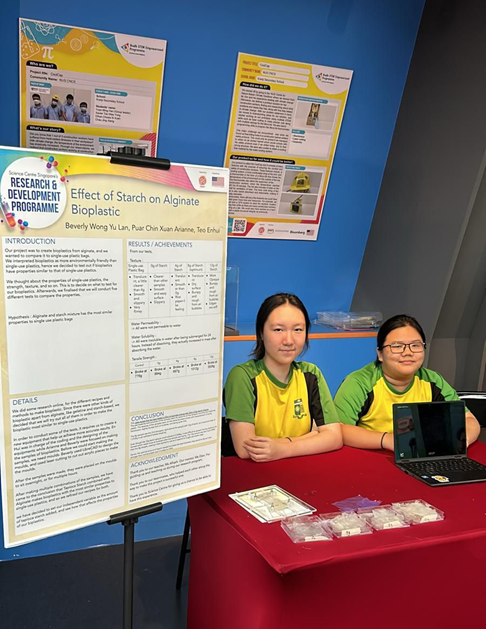
Orchid Park adopts Treffinger’s Levels of Service approach for talent development. Interests, talents, and strengths are progressively developed via a four-level approach. Levels I and II are foundational and exploratory stages for the emergence and development of talent areas for all students. Levels III and IV activities and programmes are catered to smaller groups of students who demonstrate outstanding abilities in specific domains.
In curating programmes and activities, we recognise that talents are multifaceted and must be purposefully and intentionally developed. A range of programmes and activities across four domains and at four different levels are specially designed for students to explore different areas, and build competence in their chosen field. This approach provides students with learning experiences that cover both breadth and depth.
Achievements
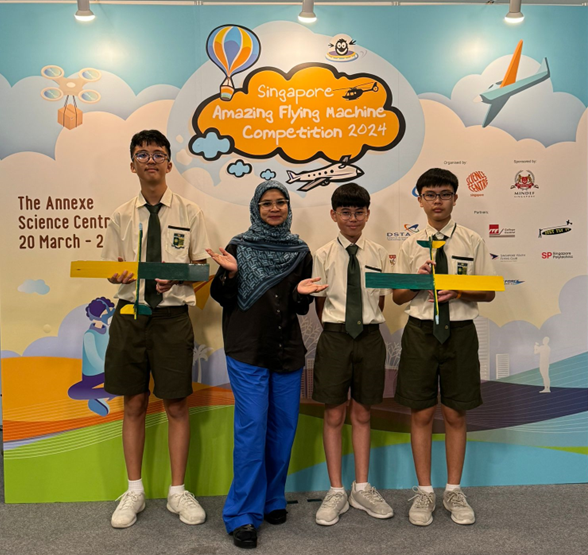
Year 2024
Year 2023
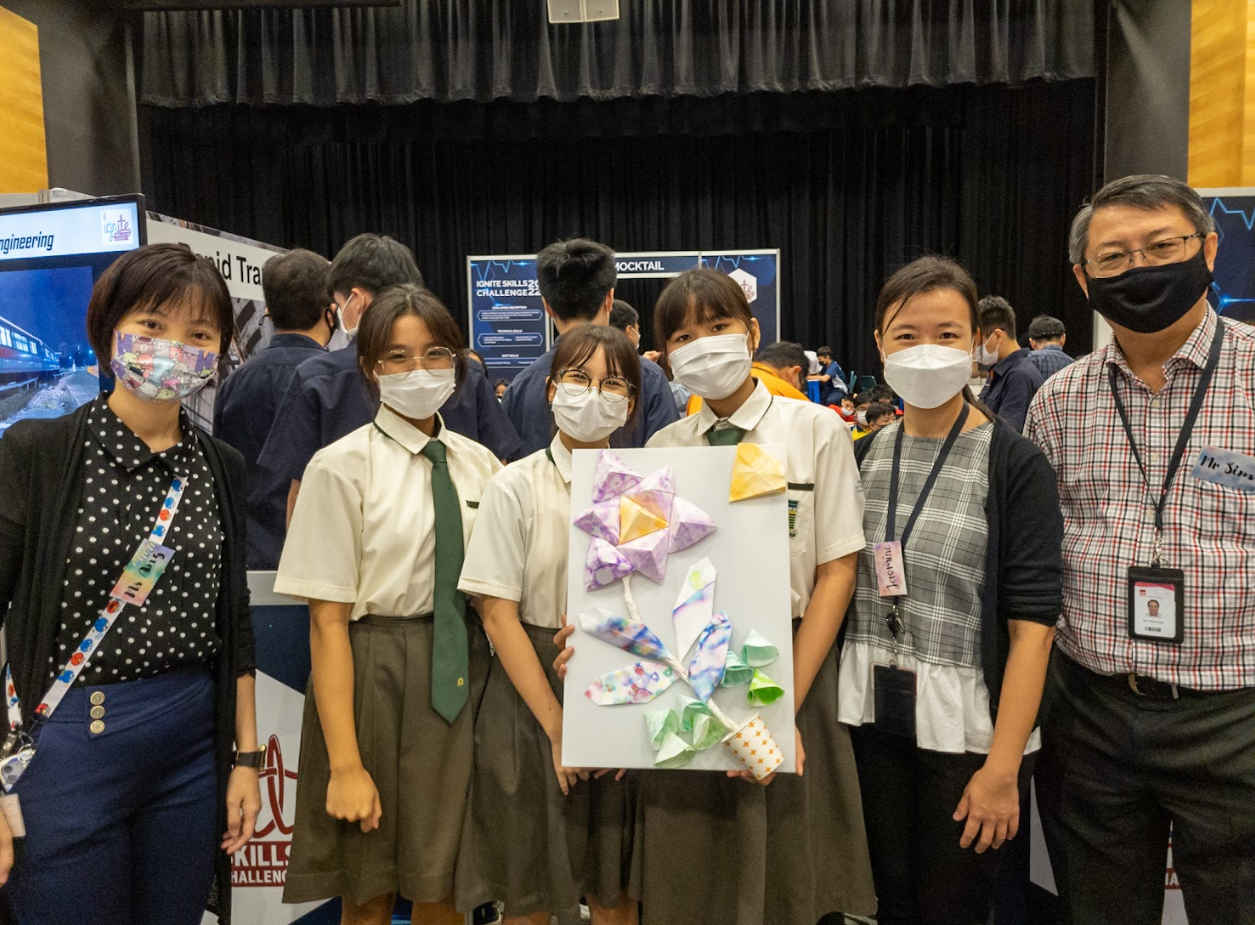
Year 2022
Year 2021

